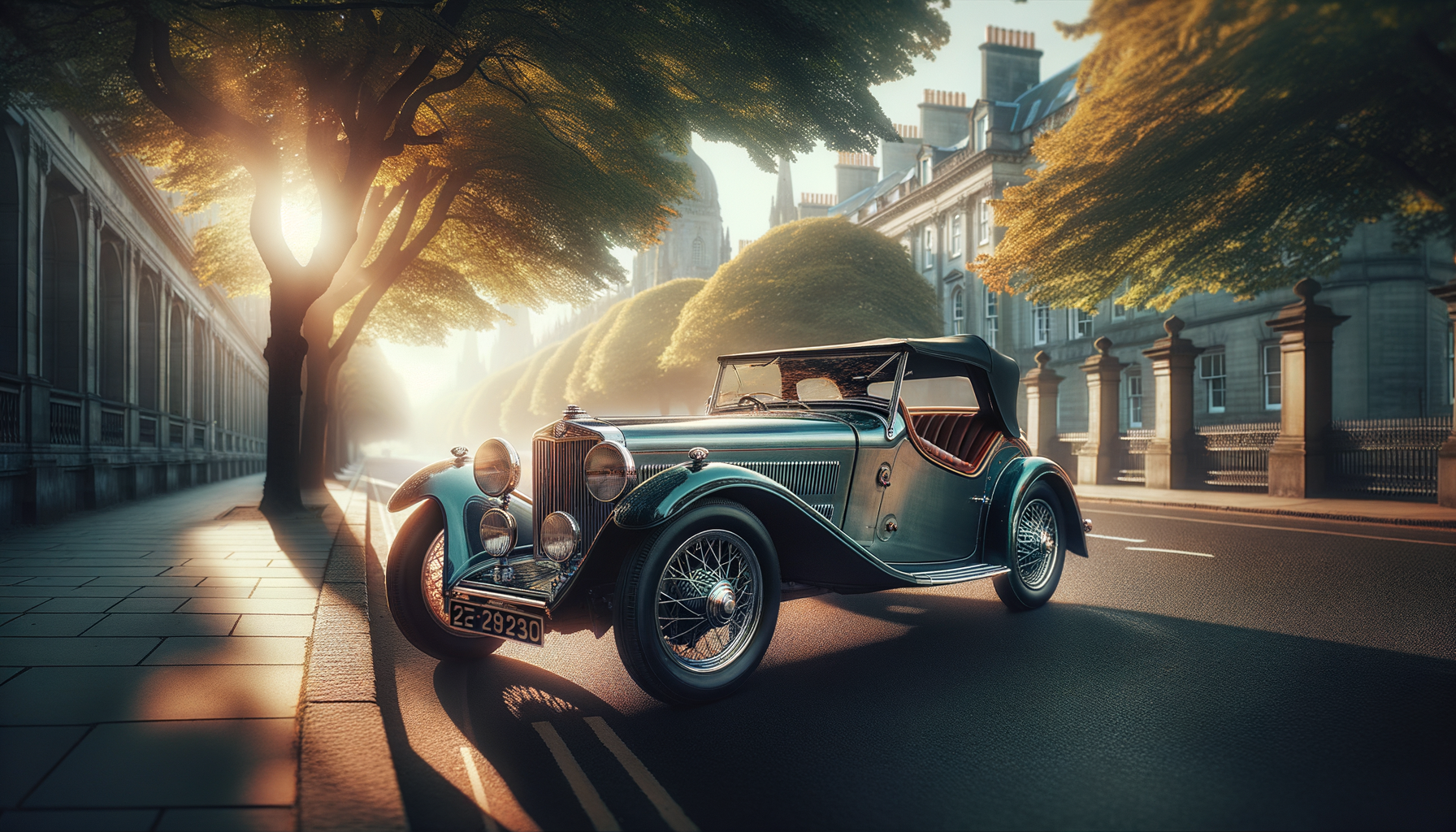
How to Find Affordable Classic Cars: A Comprehensive Guide
The Allure of Classic Cars
Classic cars have long captured the imagination of enthusiasts and collectors alike. These vehicles are not merely modes of transportation; they represent a piece of history, a testament to the engineering and design ethos of their time. The allure of classic cars lies in their unique aesthetics, the craftsmanship involved in their creation, and the nostalgia they evoke. Owning a classic car is akin to possessing a tangible piece of the past, offering a glimpse into the automotive culture of bygone eras.
Many classic cars are celebrated for their distinctive design features, such as the sweeping lines of a 1960s muscle car or the elegant curves of a 1950s European roadster. These designs are timeless, often serving as inspiration for modern automotive design. Furthermore, classic cars are valued for their mechanical simplicity, which allows for a more hands-on driving experience compared to today’s technology-laden vehicles.
For collectors, classic cars represent an investment opportunity. As certain models become rarer over time, their value can increase significantly. However, the true value of a classic car often extends beyond monetary considerations; it includes the joy of restoration, the thrill of driving, and the camaraderie among fellow enthusiasts. Whether driven on a sunny weekend or displayed at a car show, classic cars continue to captivate and inspire.
Where to Start Your Search
Finding the right classic car requires patience, research, and a clear understanding of what you’re looking for. The journey begins with defining your criteria: What era or style are you drawn to? Are you seeking a project car to restore, or a vehicle that’s ready to drive? Once you have a clear vision, several avenues can be explored to find your classic car.
Online marketplaces are a popular starting point. These platforms offer a wide range of vehicles, often with detailed descriptions and photographs. It’s essential to read listings carefully and reach out to sellers with any questions. Attending classic car auctions is another option, providing the opportunity to see vehicles in person and gauge their condition. Auctions can be thrilling but require a keen eye and a predetermined budget to avoid overspending.
Join classic car clubs or forums to connect with like-minded individuals. These communities are invaluable resources for advice, leads on available cars, and insights into market trends. Networking within these groups can open doors to private sales not advertised elsewhere.
Lastly, consider visiting classic car dealerships. Although prices may be higher than private sales, dealerships often provide a level of assurance in terms of vehicle condition and history. Whether online or in person, the search for a classic car is a journey filled with discovery and excitement.
Evaluating the Condition of Classic Cars
When considering a classic car purchase, evaluating the vehicle’s condition is paramount. Classic cars can vary widely in terms of maintenance and restoration, making it crucial to assess their state accurately. Begin with a thorough inspection of the exterior. Look for signs of rust, dents, or mismatched paint, which can indicate previous repairs. Check the condition of the chrome, glass, and trim, as these elements can be costly to restore.
Examine the interior for wear and tear. Original interiors are often more valuable, but any restoration work should be well-executed and in keeping with the car’s original design. Pay attention to the dashboard, seats, and carpeting, as these are common areas for deterioration.
Under the hood, inspect the engine and mechanical components. Look for leaks, unusual noises, or signs of neglect. If possible, take the car for a test drive to assess its performance. Classic cars may not handle like modern vehicles, but they should operate smoothly without excessive vibration or noise.
Consider obtaining a professional appraisal or inspection from a classic car expert. They can provide a detailed assessment of the vehicle’s condition and market value, helping you make an informed decision. Remember, the condition of a classic car significantly impacts its value and the enjoyment you’ll derive from ownership.
Negotiating the Price
Negotiating the price of a classic car can be a daunting task, but with preparation and knowledge, you can secure a favorable deal. Begin by researching the market value of the specific make and model you’re interested in. Online resources, price guides, and auction results can provide a benchmark for what similar cars are selling for.
When negotiating, be respectful and reasonable. Sellers may have an emotional attachment to their vehicles, so approach discussions with empathy. Highlight any issues or necessary repairs you’ve identified during your inspection, as these can be used as leverage for negotiating a lower price.
Be prepared to walk away if the price doesn’t align with your budget. Patience is key; another opportunity will arise if this one isn’t right. Consider making a counteroffer that reflects the car’s condition and your budget constraints. Flexibility on both sides can often lead to a mutually beneficial agreement.
Finally, ensure all agreements are documented in writing, including the final price, terms of sale, and any promises regarding repairs or included parts. A clear, written agreement protects both buyer and seller and ensures a smooth transaction.
Owning and Maintaining Your Classic Car
Once you’ve acquired your classic car, the journey of ownership begins. Maintaining a classic car requires dedication and attention to detail. Regular maintenance is crucial to preserving the vehicle’s condition and ensuring its longevity. Establish a routine that includes oil changes, fluid checks, and regular inspections of belts, hoses, and brakes.
Storage is another critical aspect of classic car ownership. Ideally, store your vehicle in a climate-controlled environment to protect it from the elements. If this isn’t possible, invest in a high-quality car cover and consider using a dehumidifier to prevent rust and corrosion.
Join classic car clubs or associations, as these communities provide invaluable support and resources. They offer workshops, events, and a network of experts who can assist with maintenance and restoration projects. Sharing your passion with others can enhance your ownership experience and provide opportunities to learn and grow.
Finally, enjoy your classic car. Whether participating in car shows, joining rallies, or simply taking a leisurely drive, the joy of owning a classic car lies in the experiences it provides. Embrace the connection to automotive history and the satisfaction of preserving a piece of the past.


